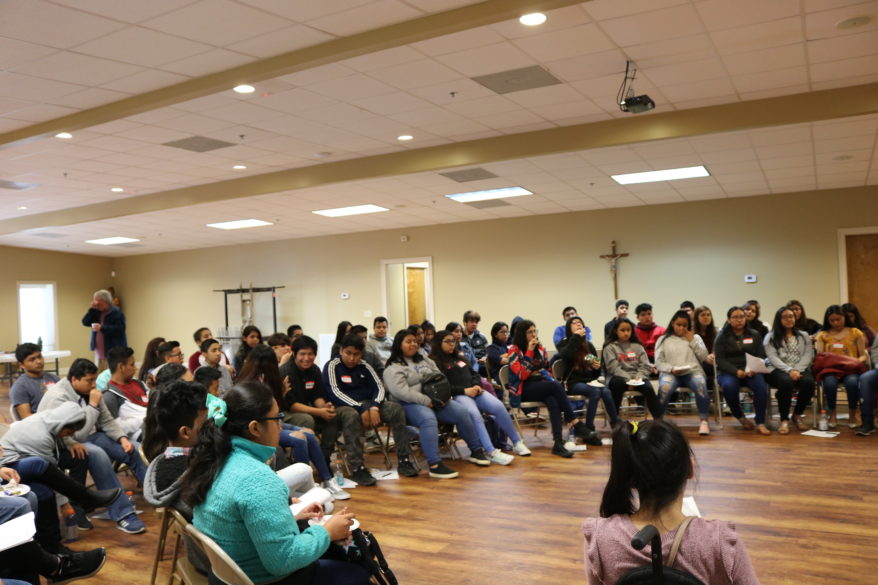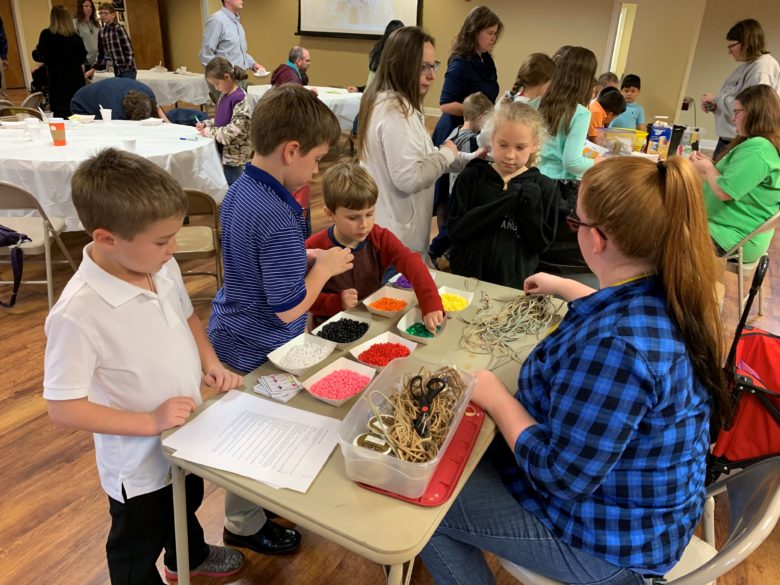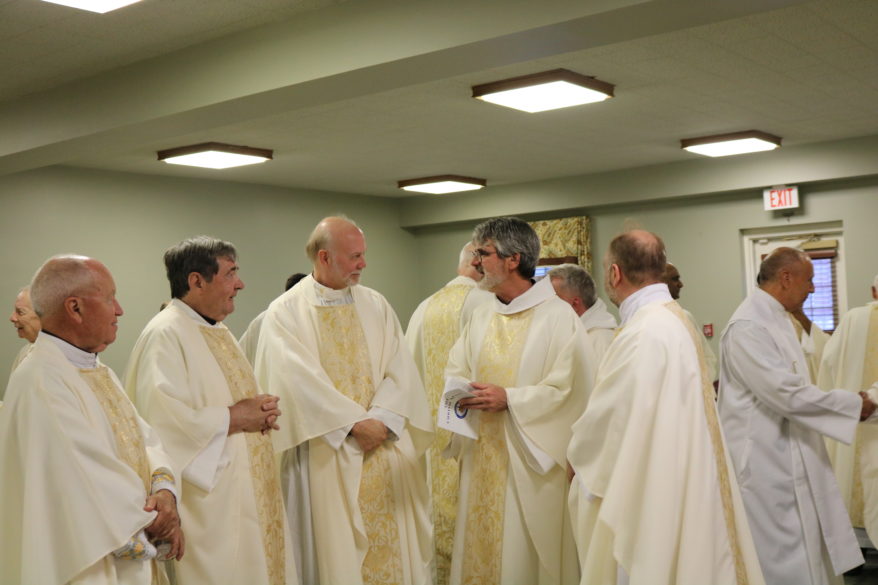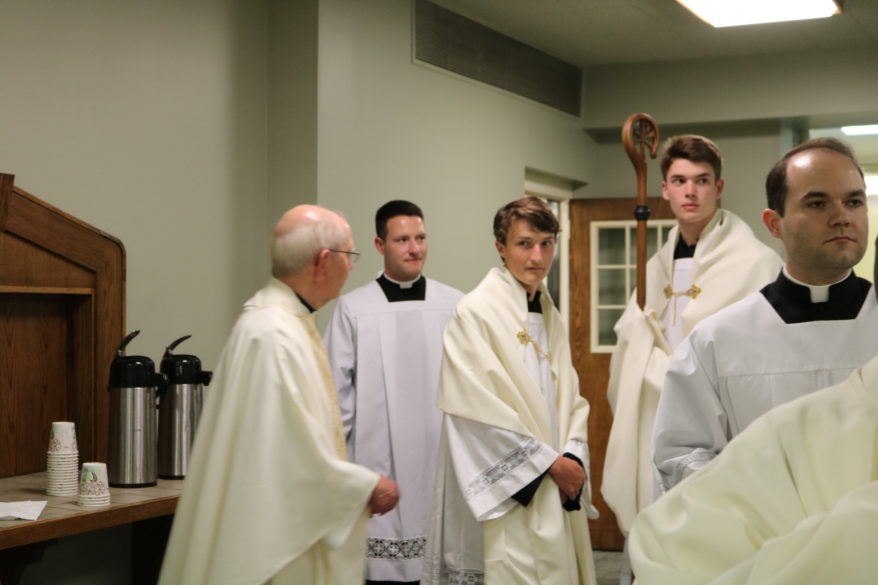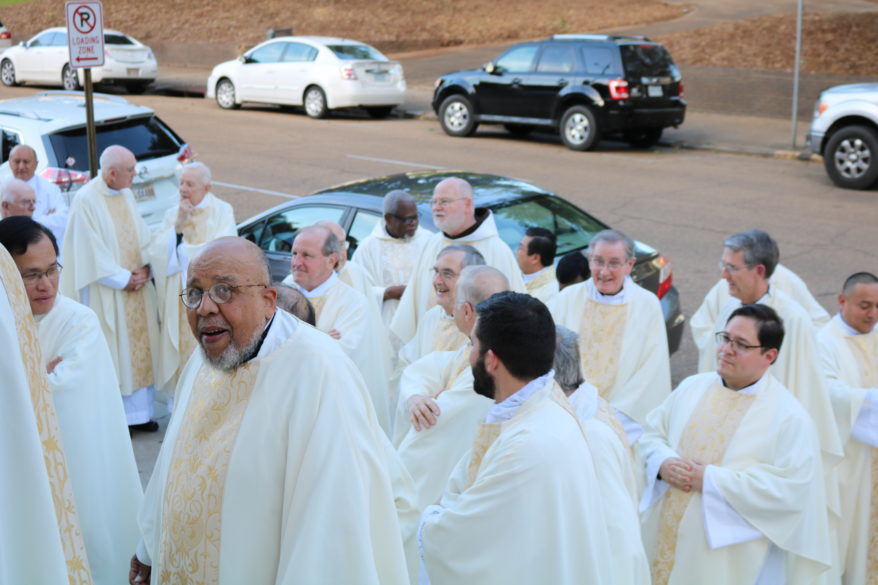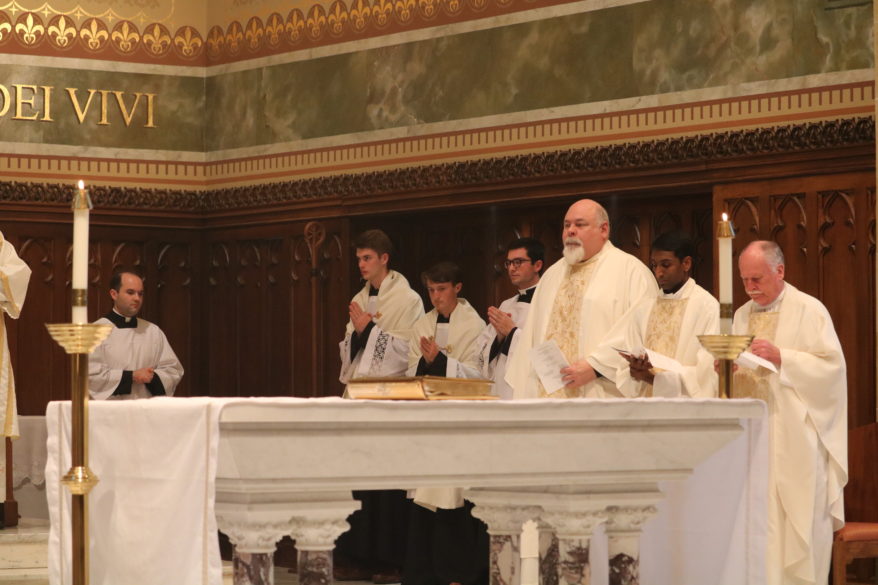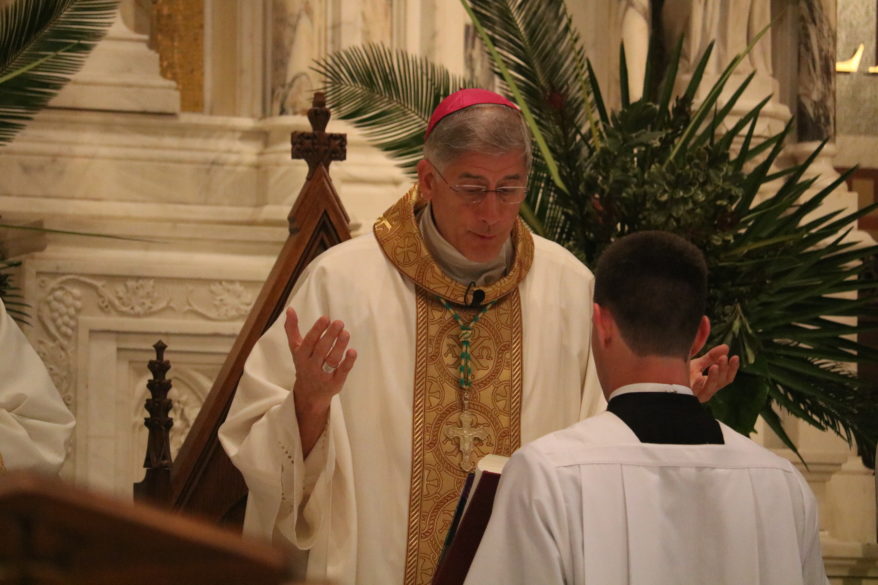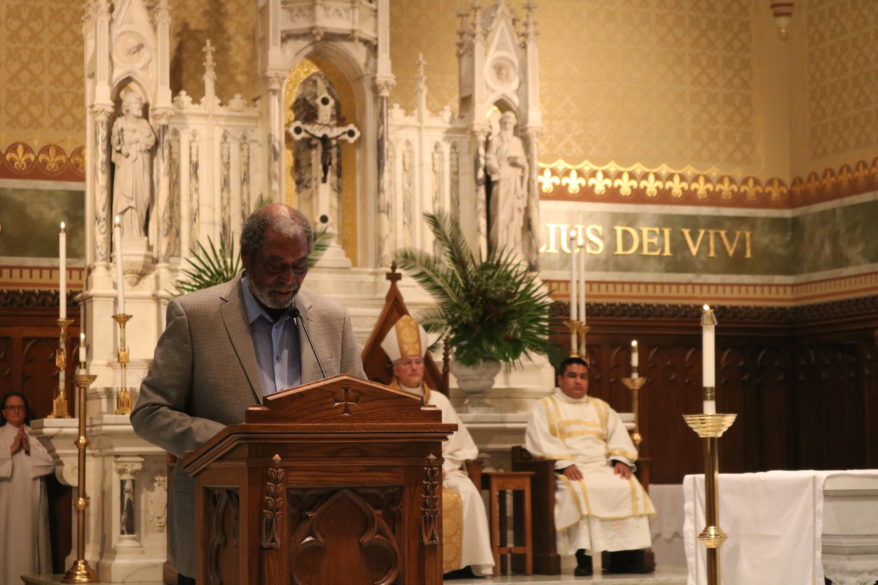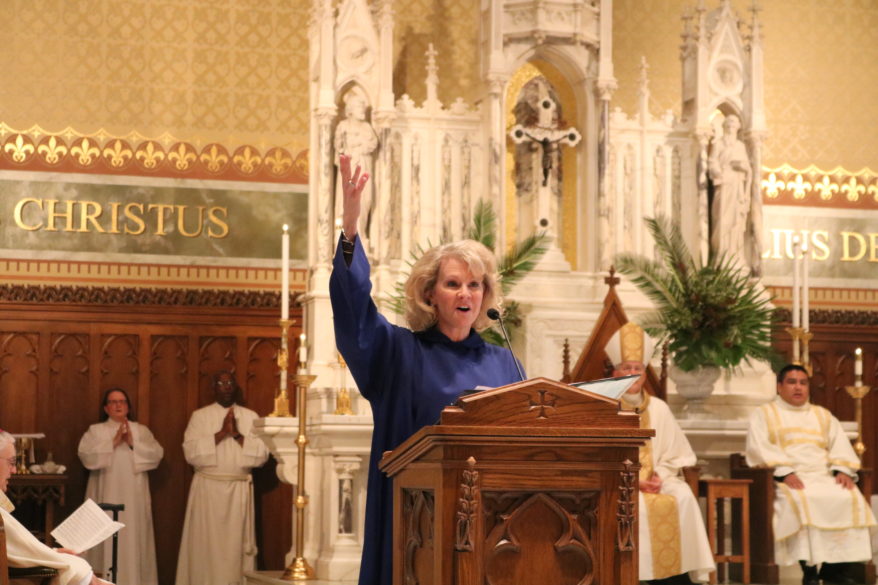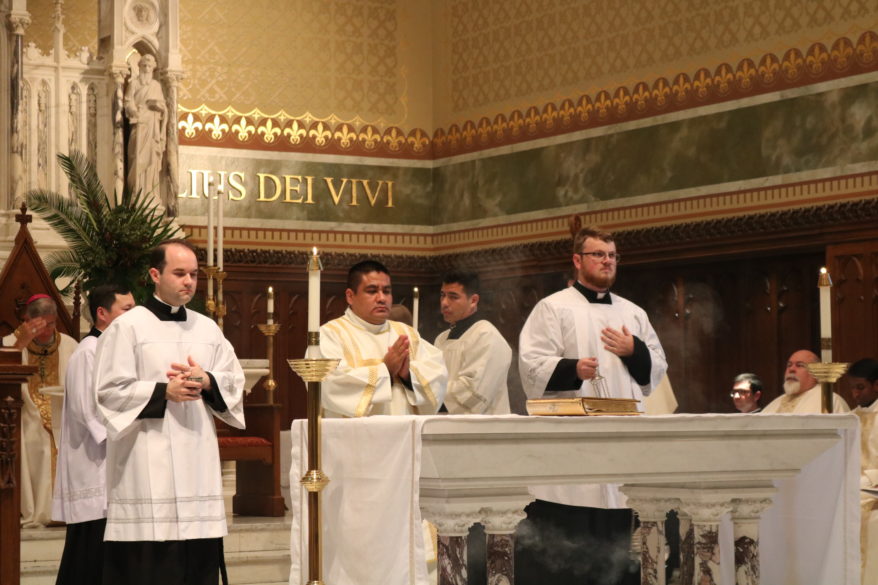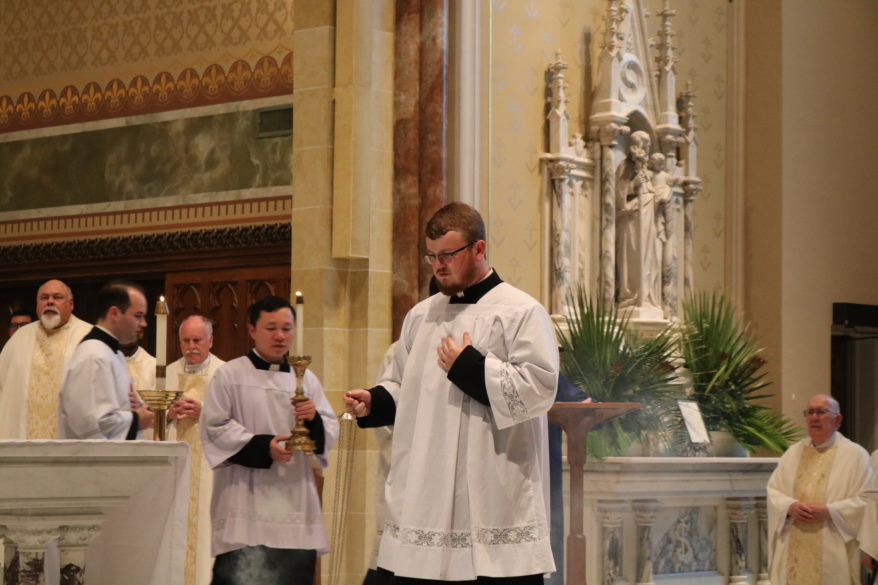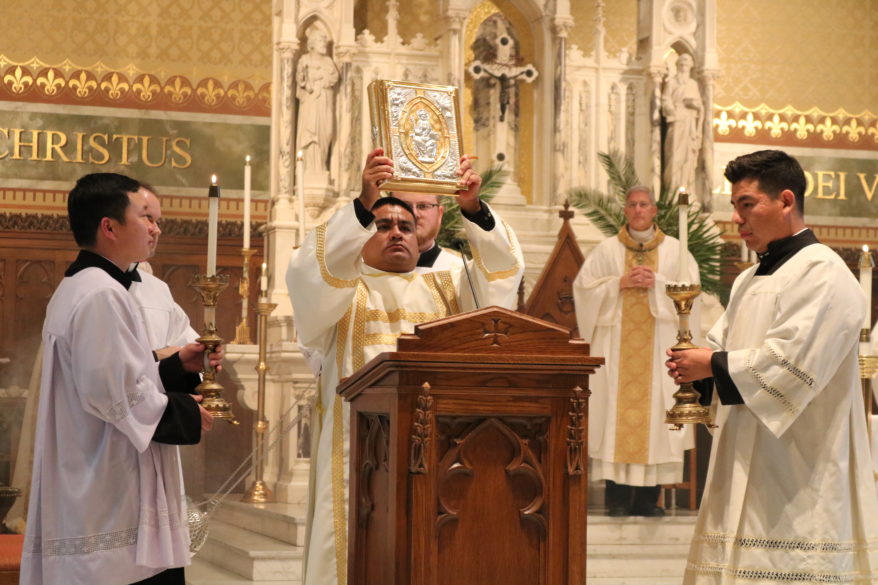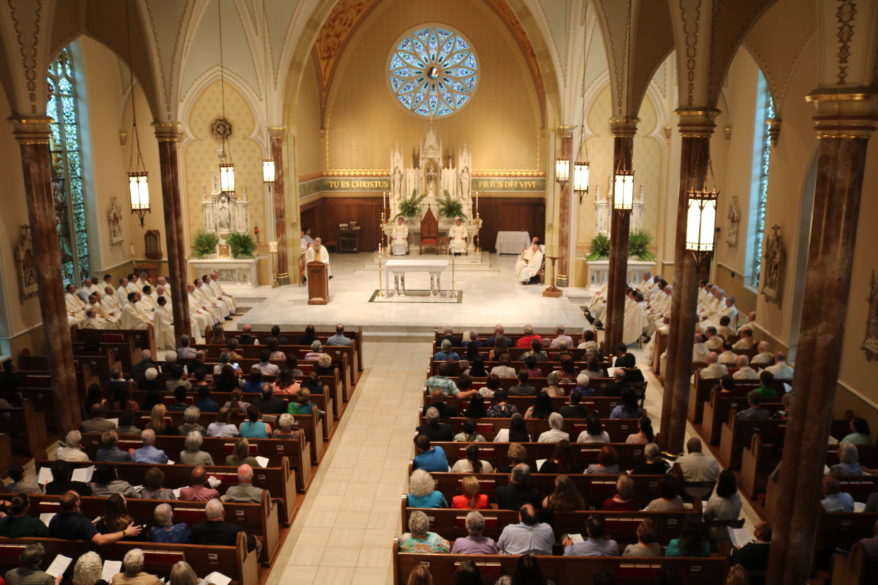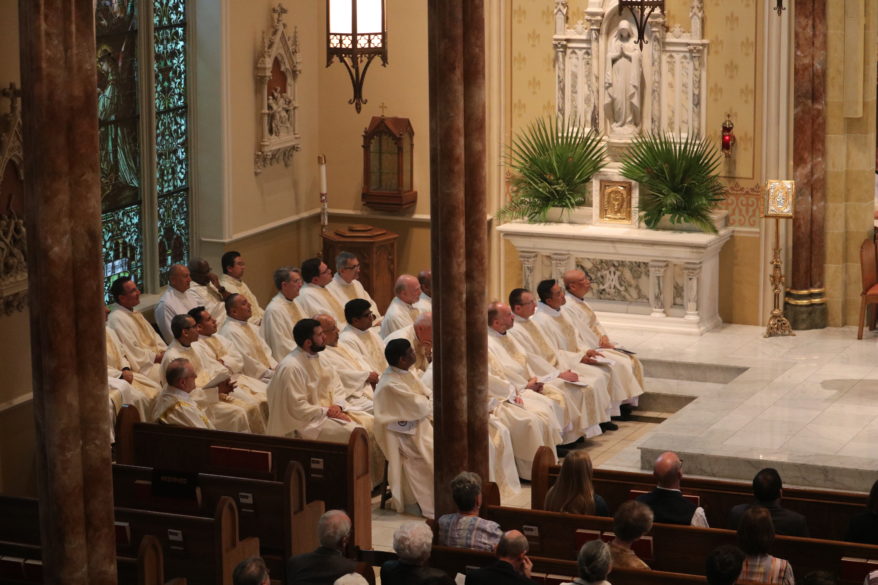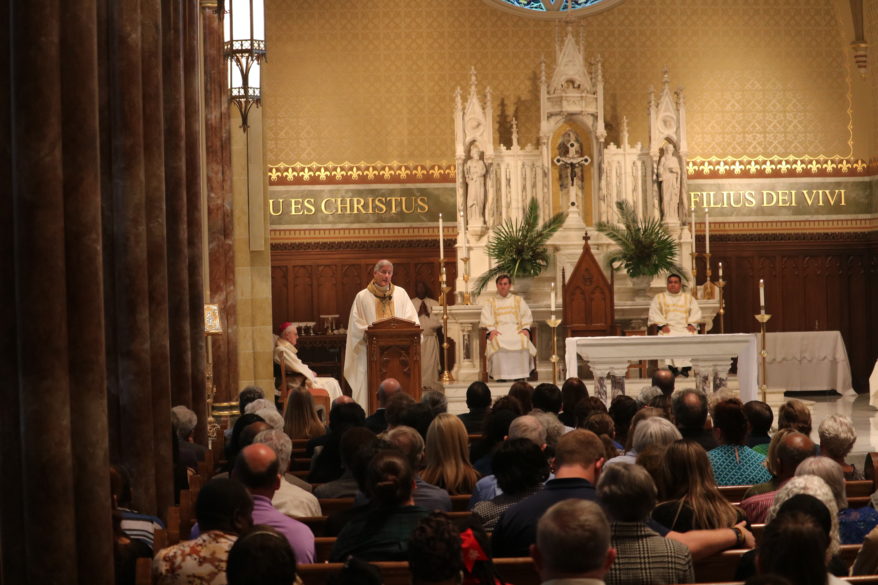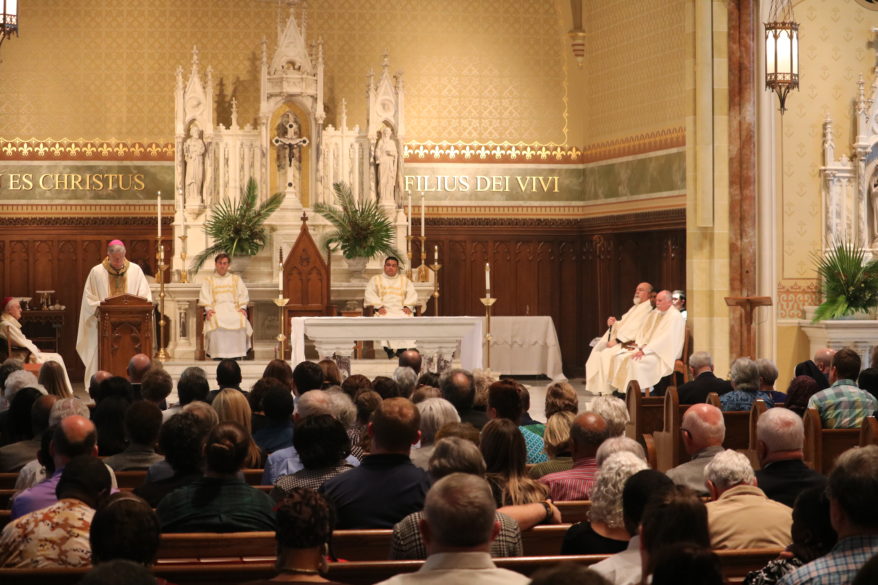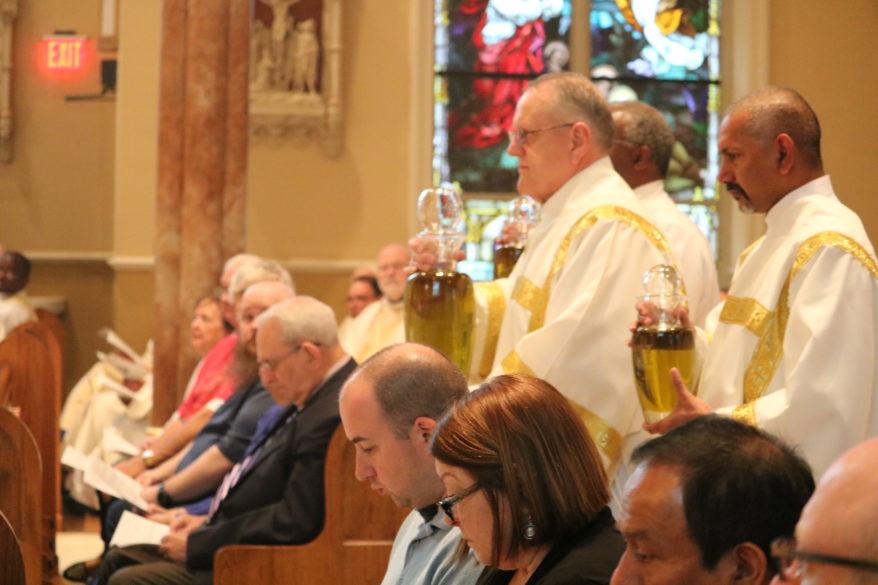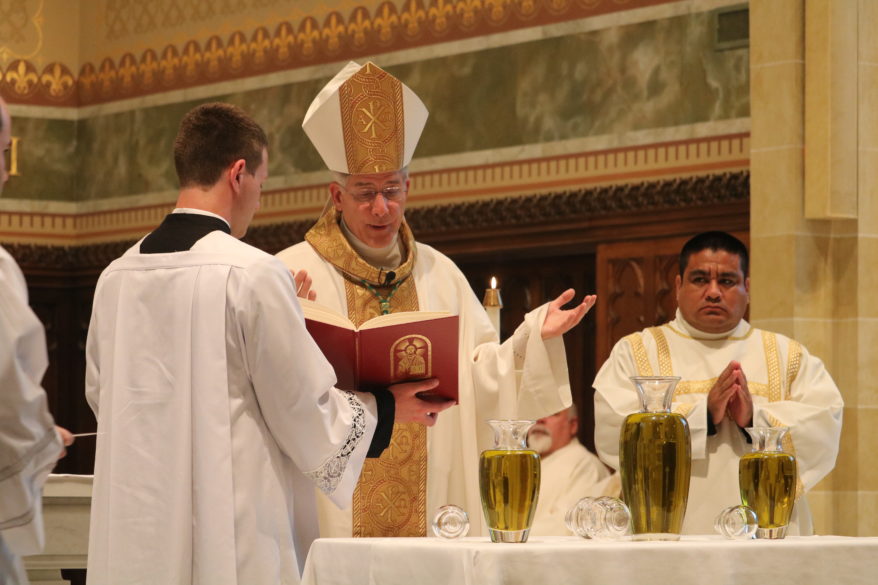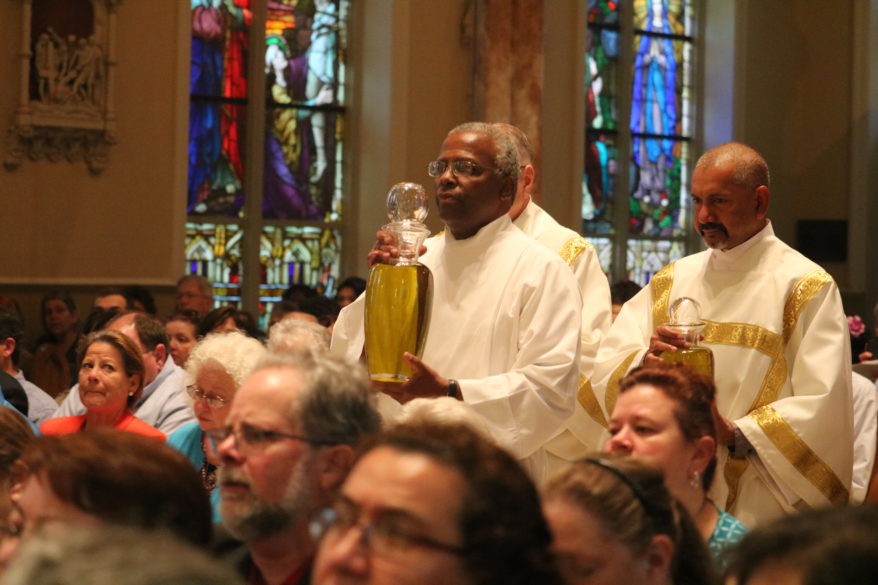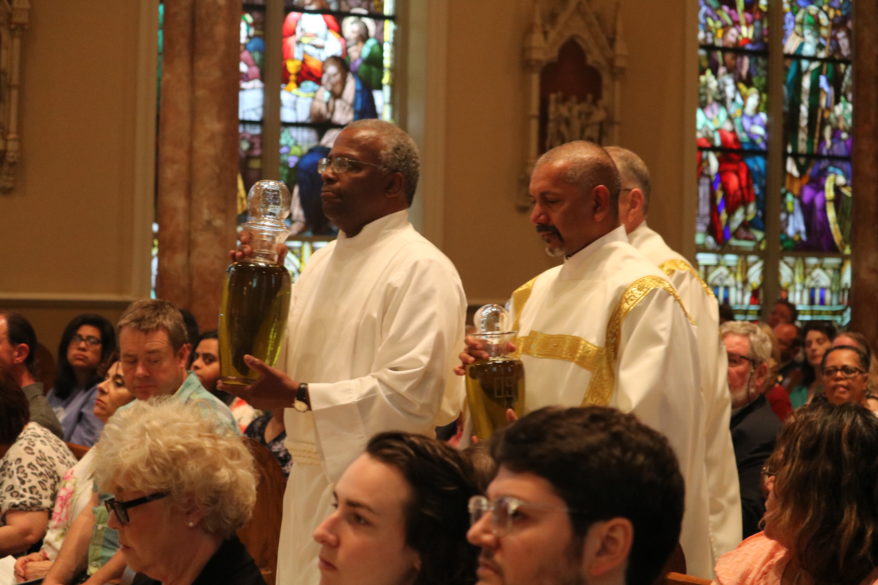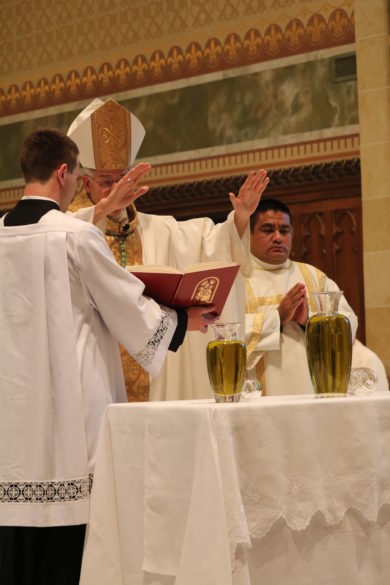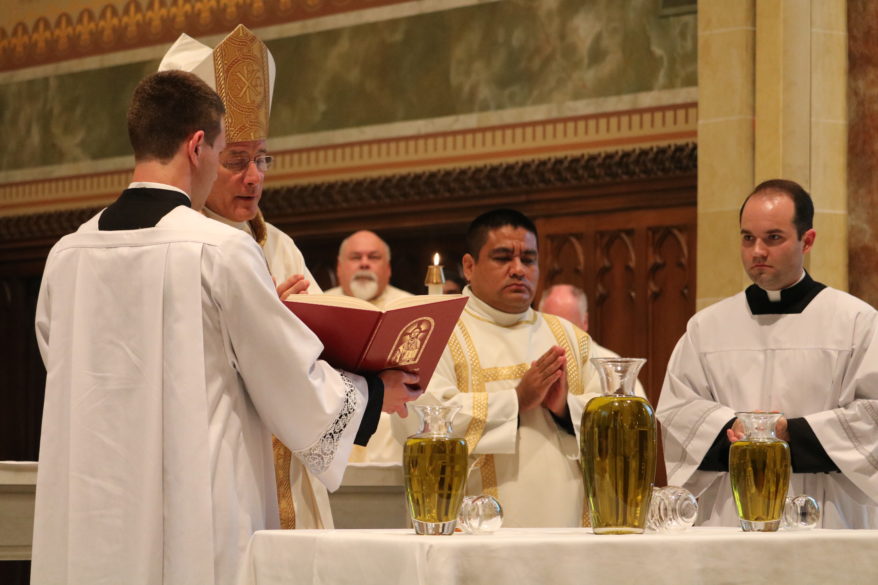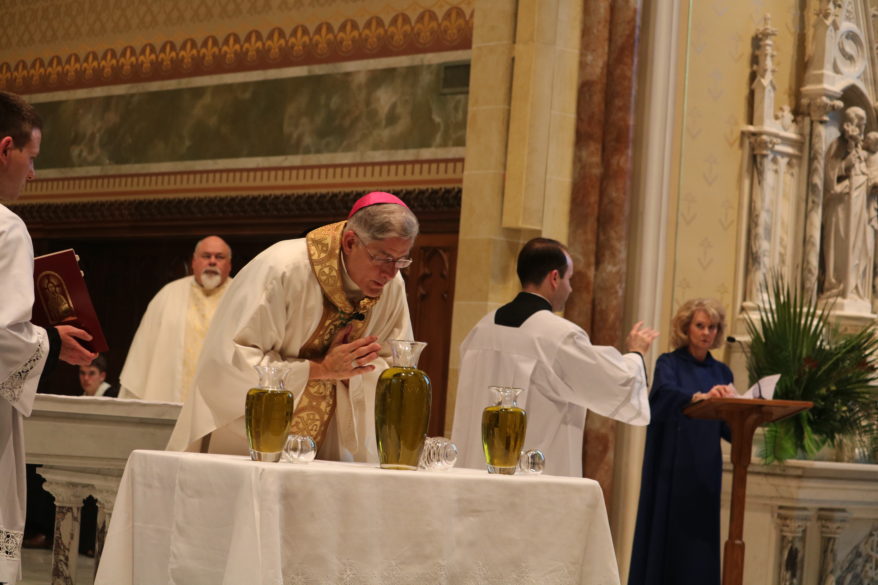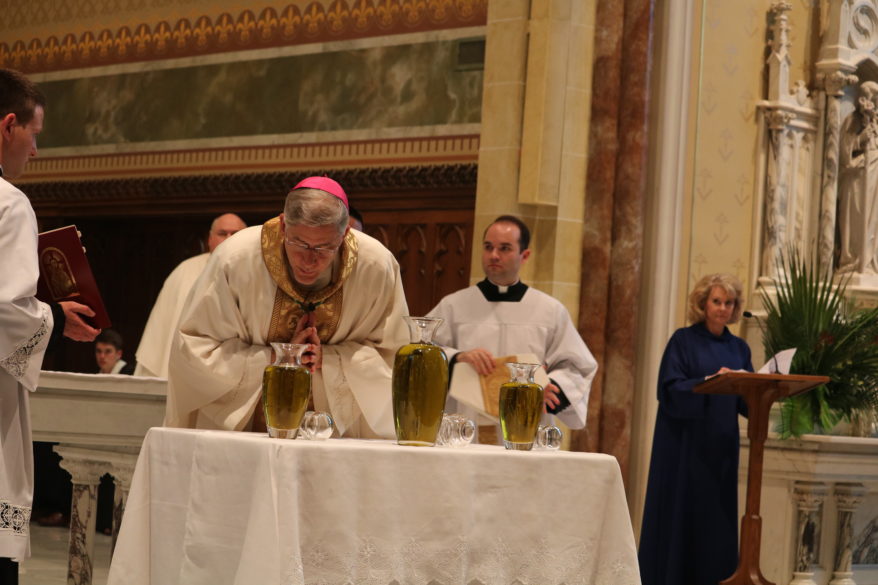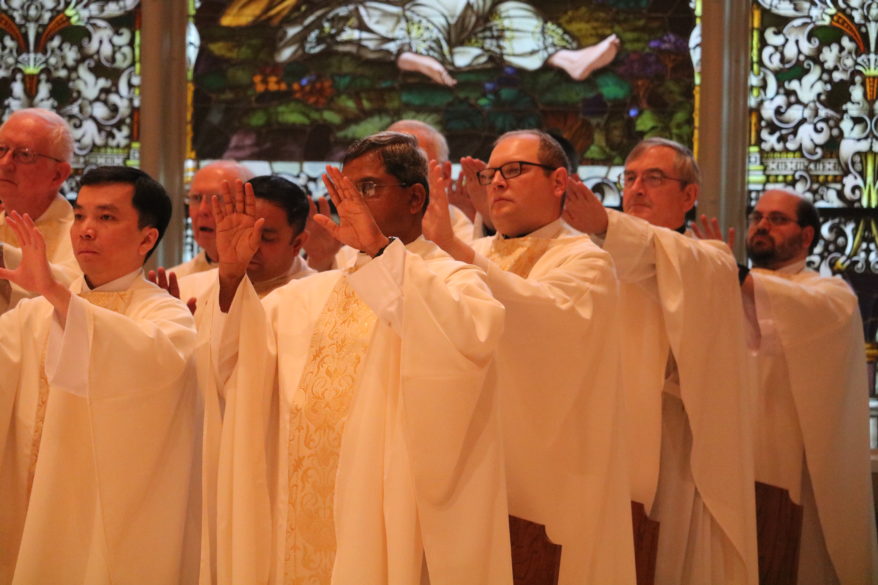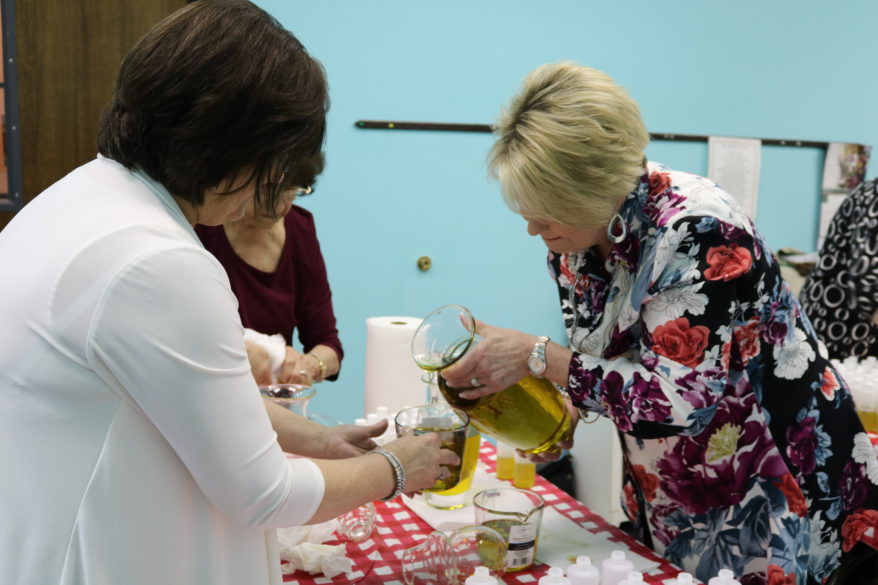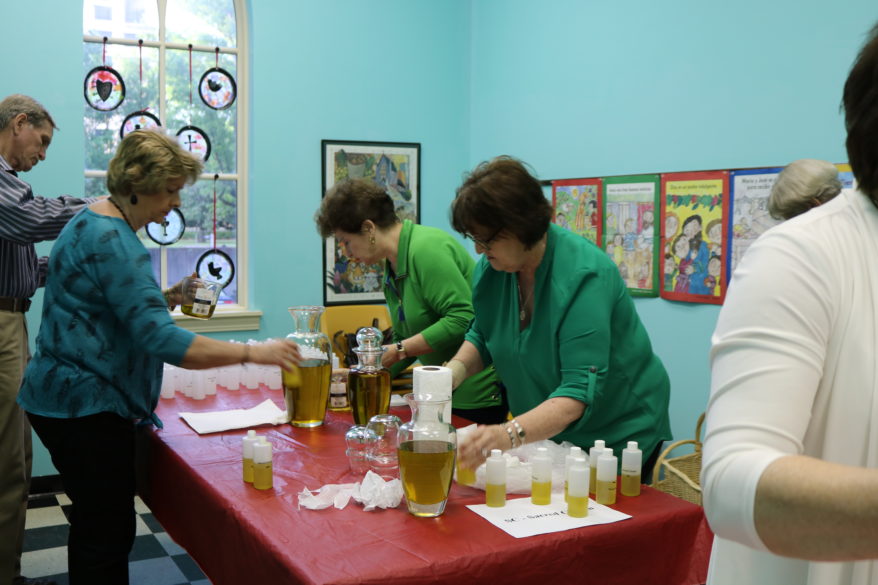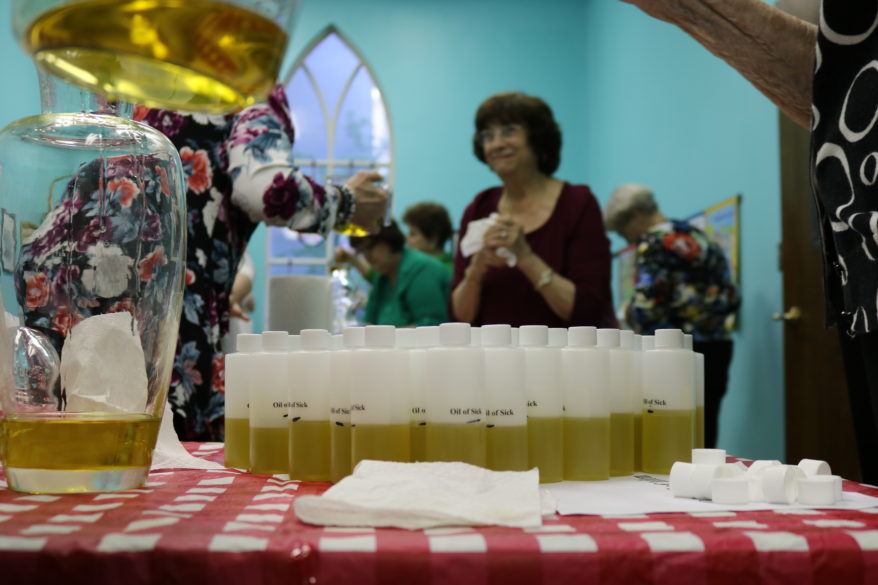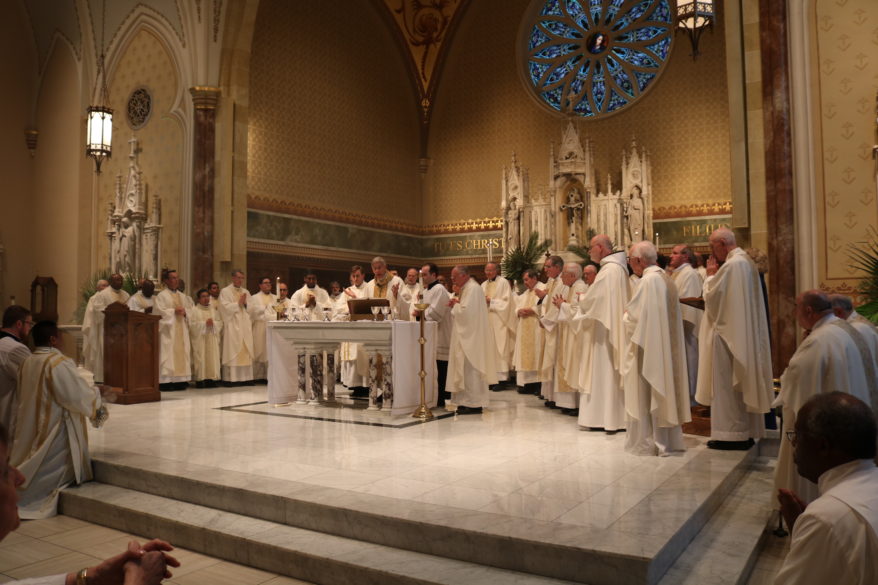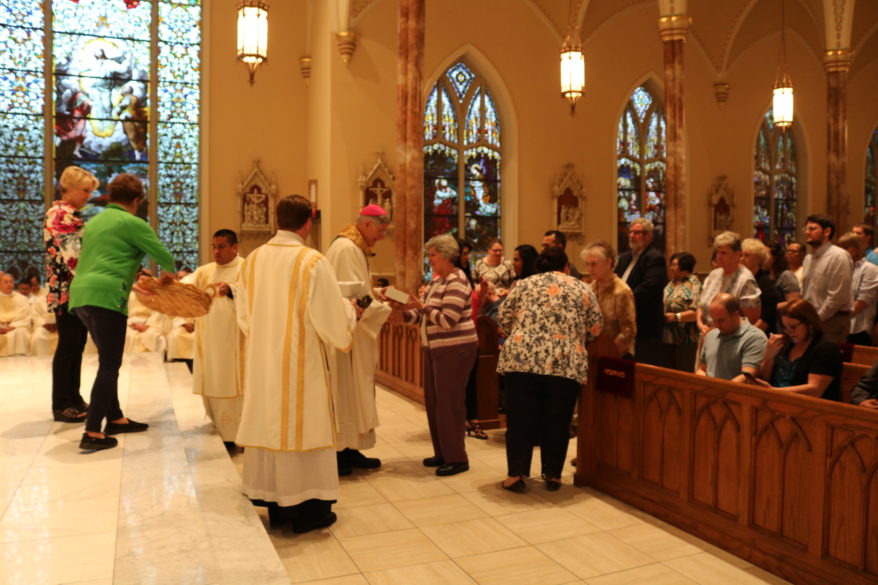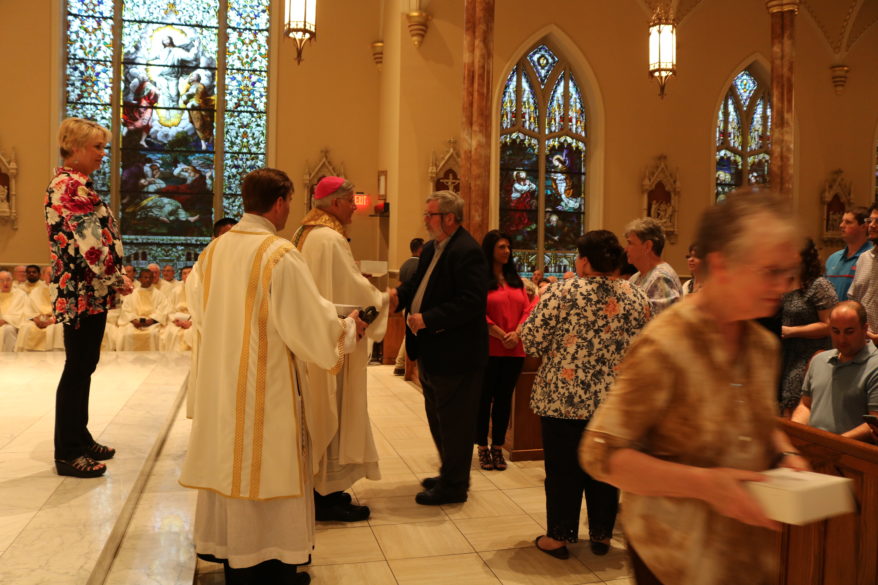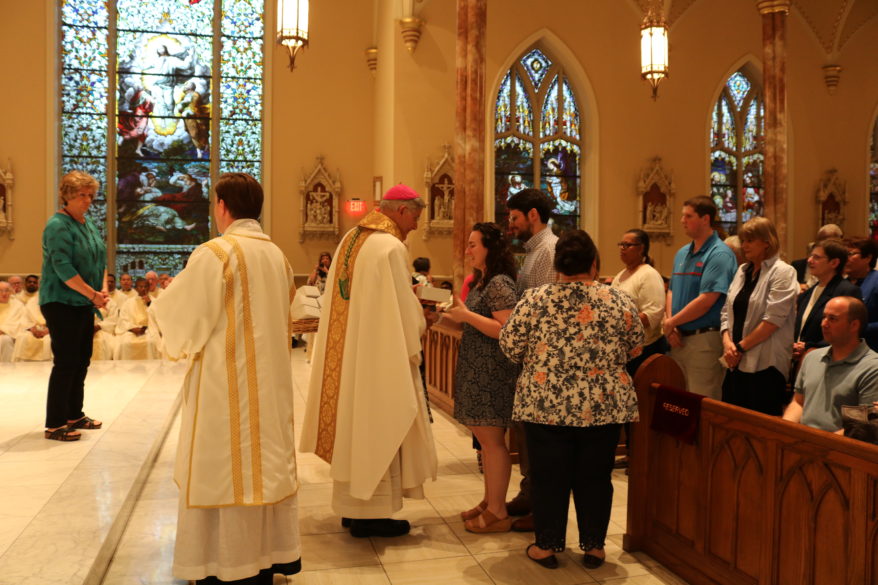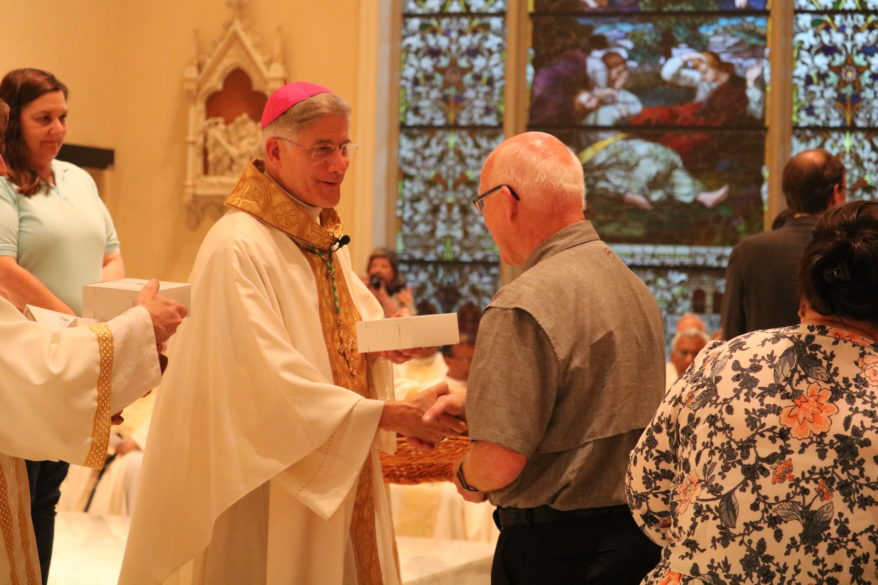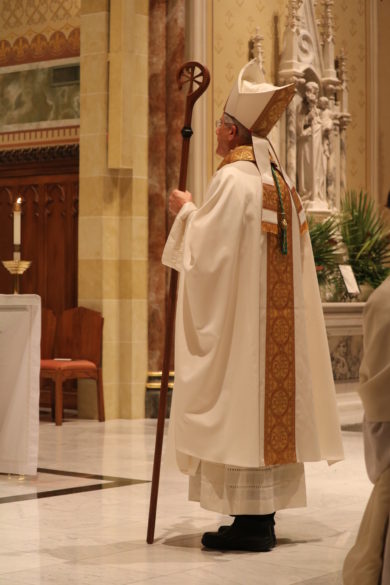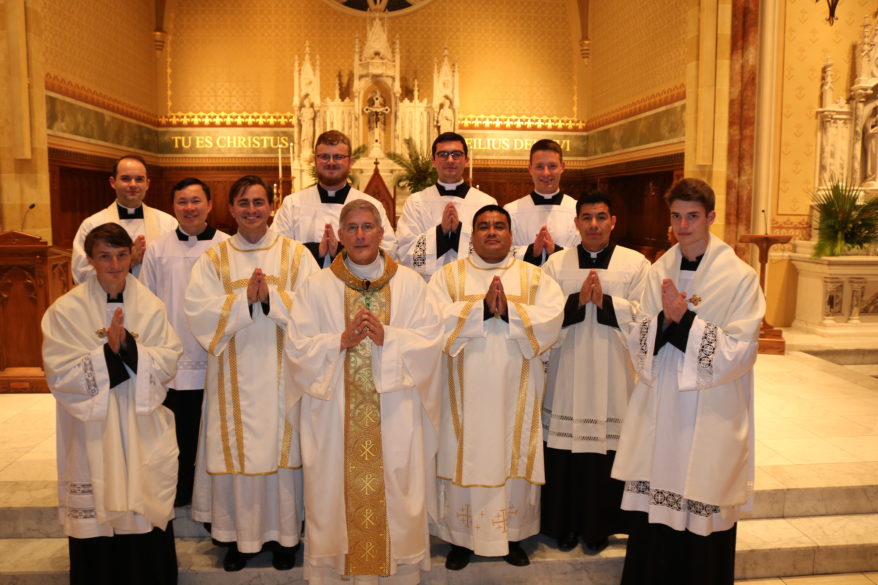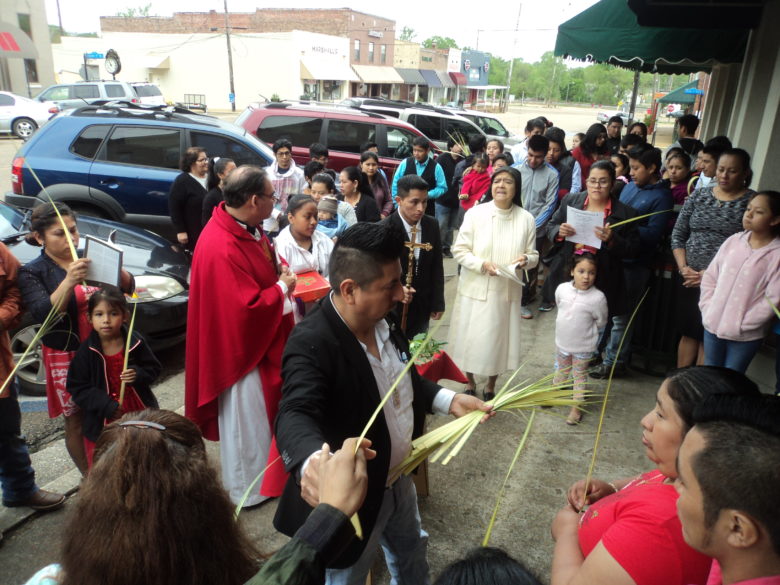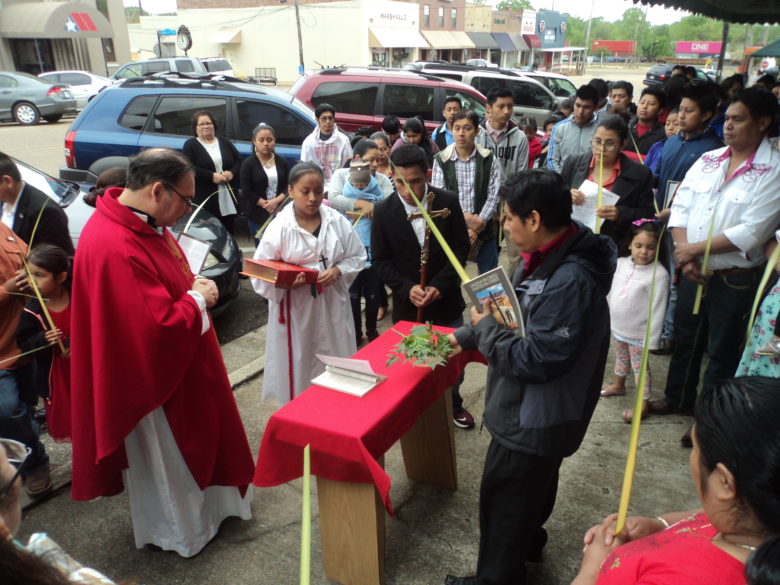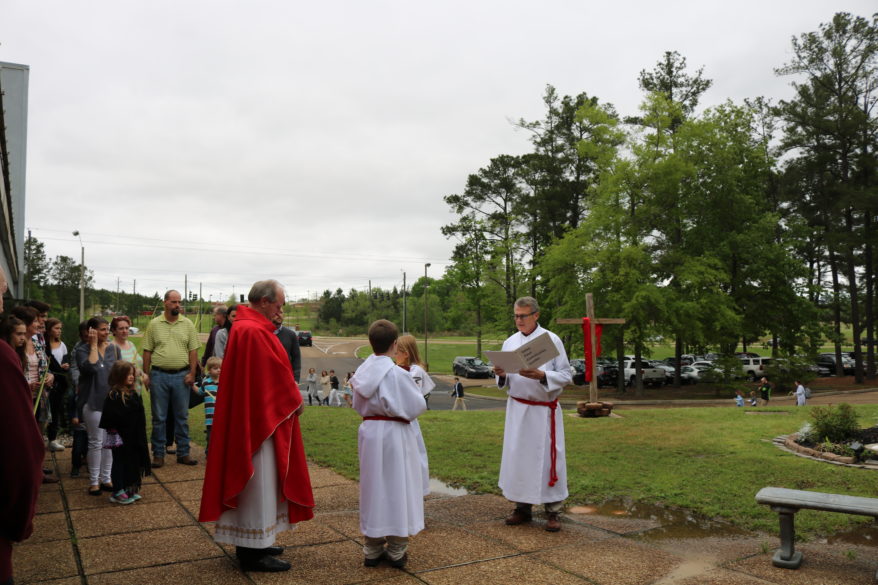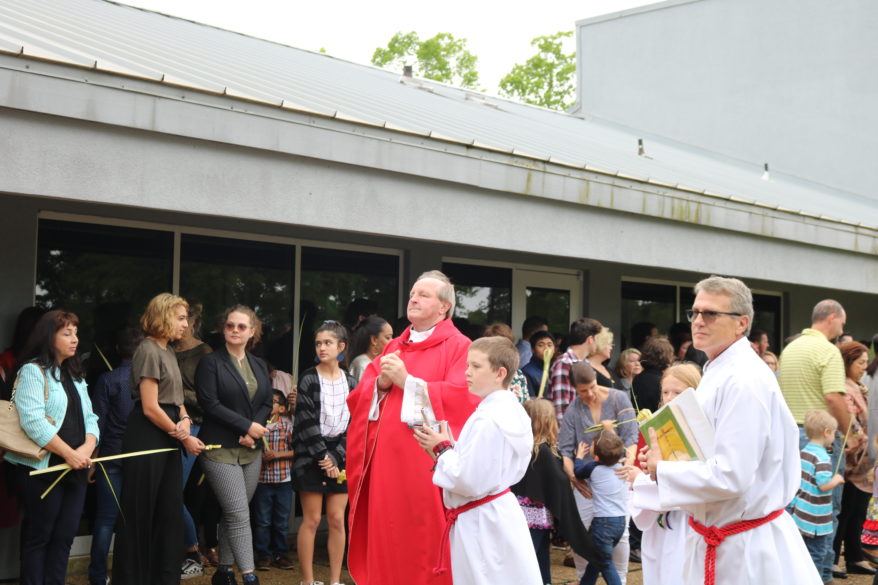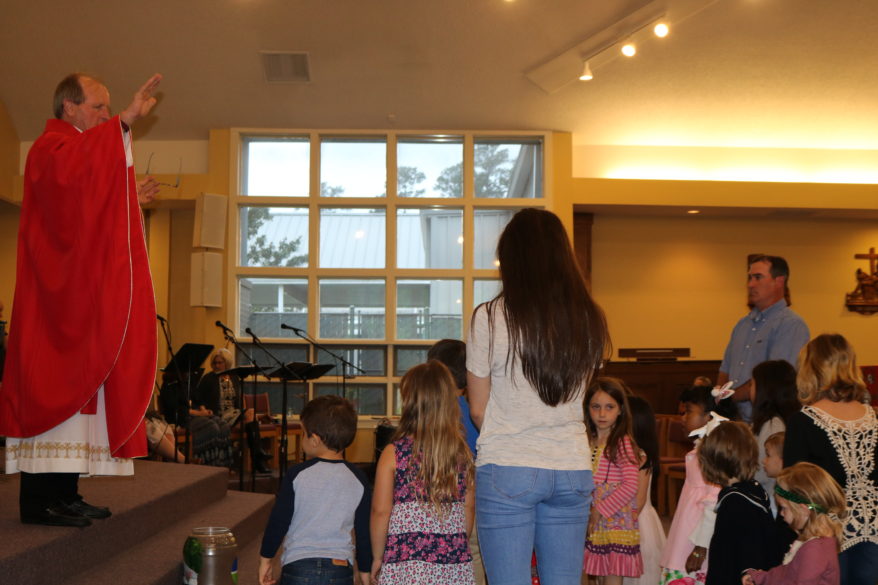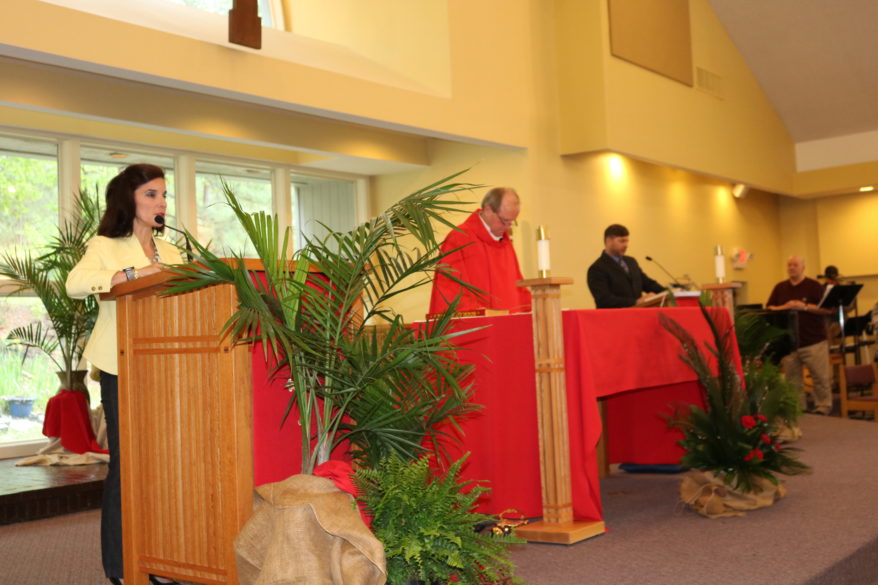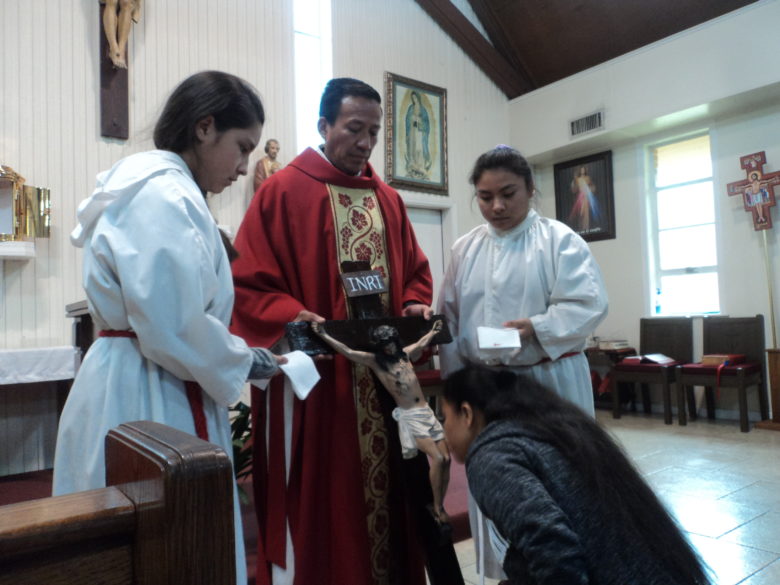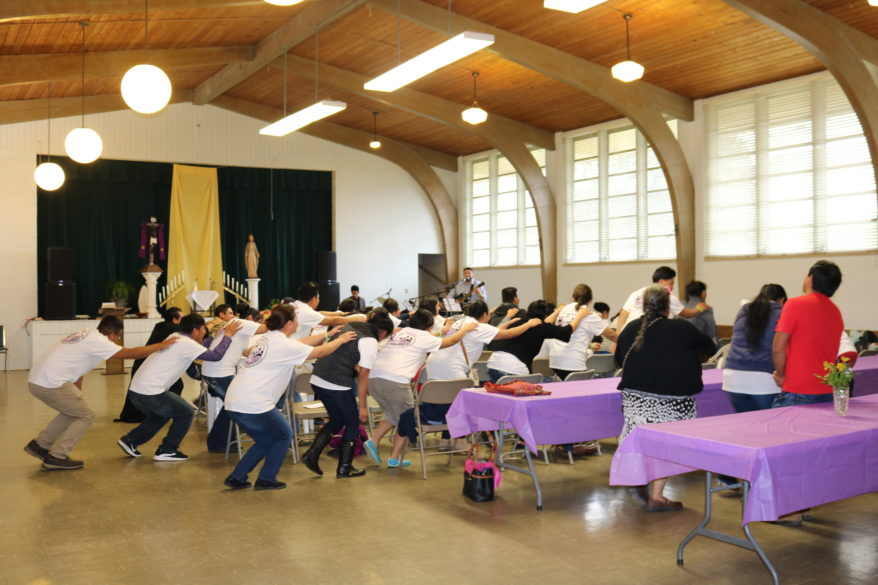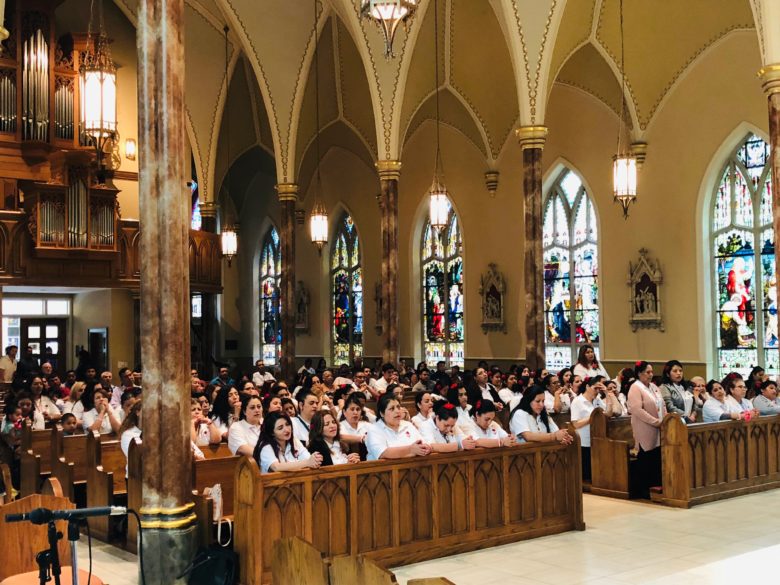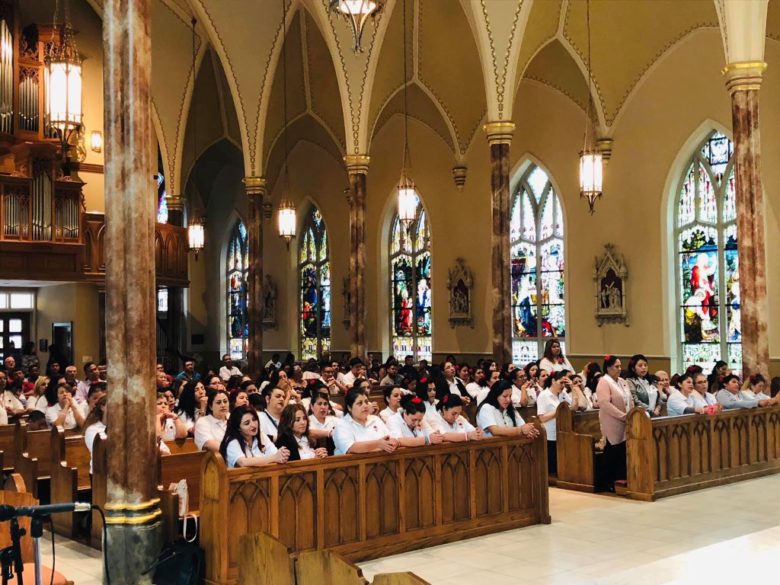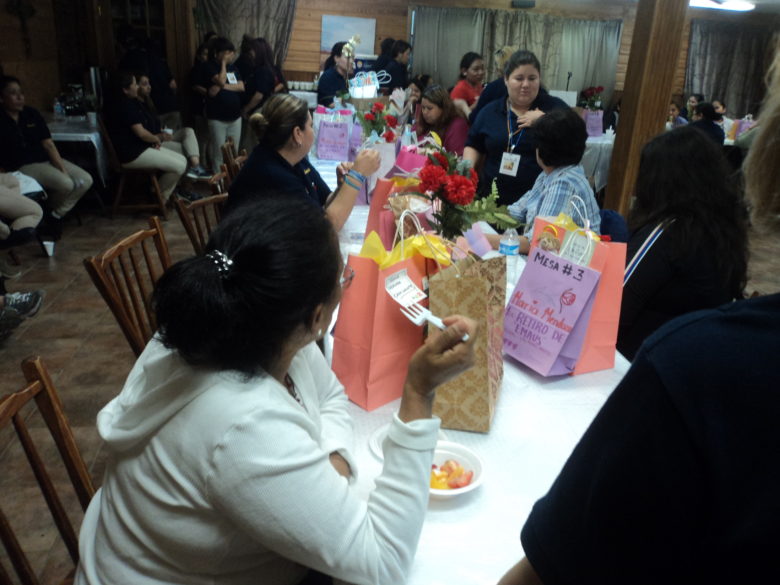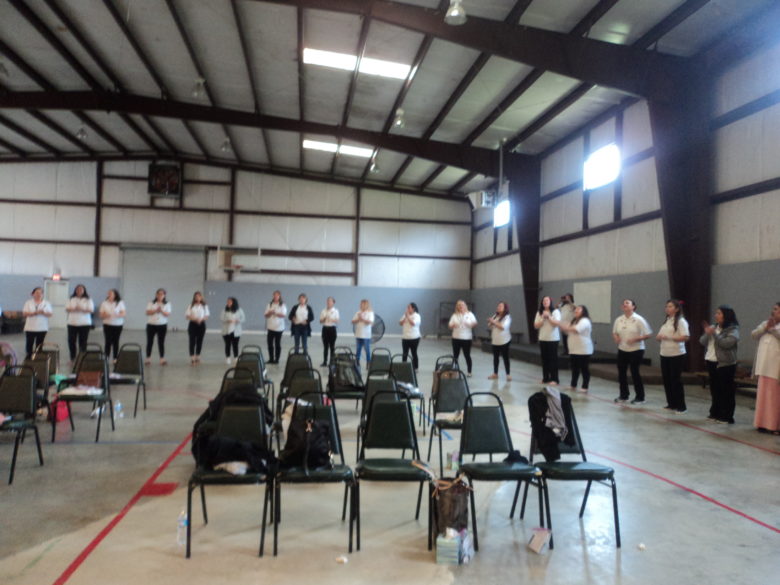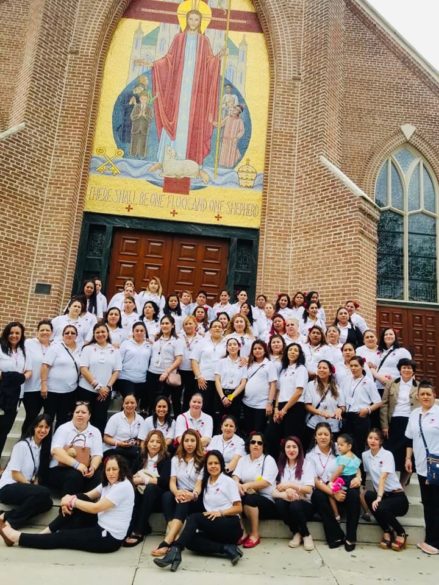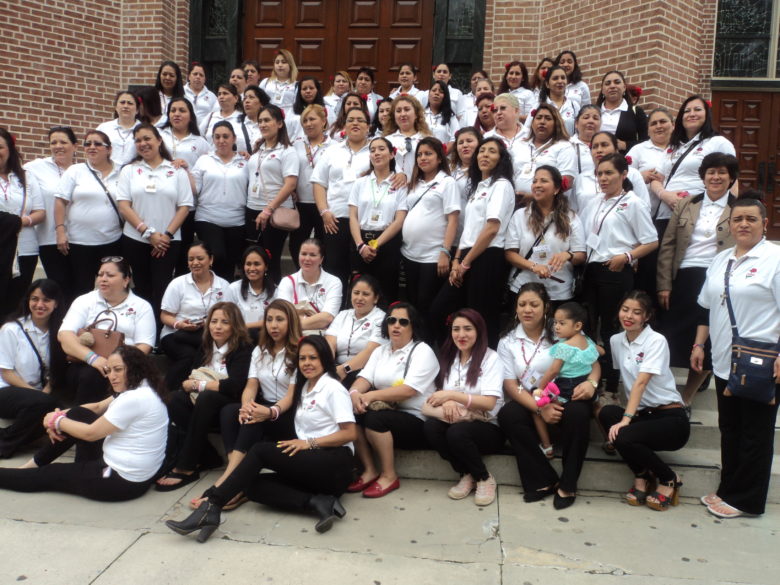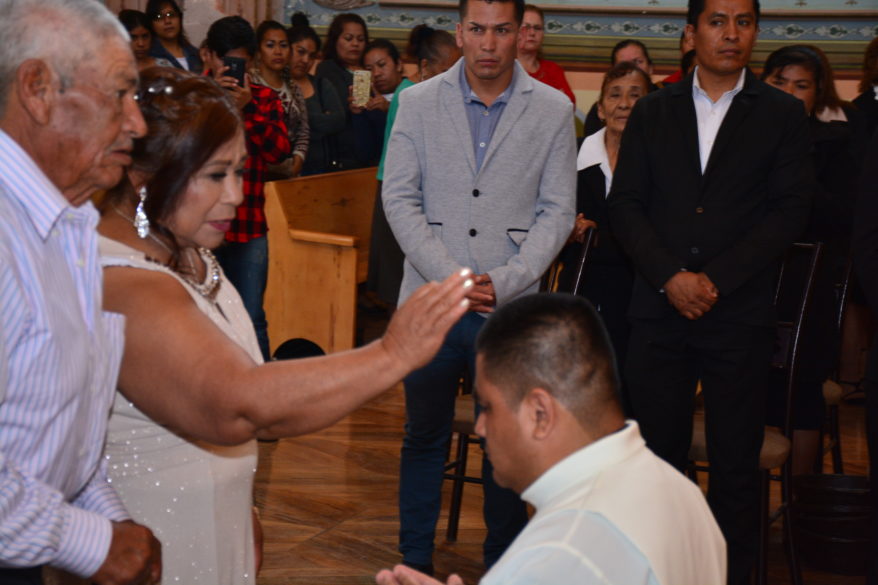Por Obispo Joseph Kopacz
Desde el párrafo inicial de la Exhortación postsinodal a los jóvenes y a todo el pueblo de Dios, titulada Christus Vivit, leemos palabras alegres del Papa Francisco que promueven la obra del Señor en nuestro mundo moderno y que están en armonía con el evangelio proclamado en nuestra Misa Crismal.
El Papa Francisco escribe: “¡Cristo está vivo! Él es nuestra esperanza, y de una manera maravillosa trae juventud a nuestro mundo, y todo lo que toca se vuelve joven, nuevo, lleno de vida. Las primeras palabras, entonces, que me gustaría decir a cada joven cristiano (y a todo el pueblo de Dios) son estas. ¡Cristo está vivo y quiere que estés vivo! “
Las primeras palabras que Jesús escogió para hablar en su ministerio público, según San Lucas, proclaman frescura y esperanza divinas “ El espíritu del Señor está sobre mí, porque me ungí para proclamar buenas nuevas a los pobres. Él me ha enviado a proclamar la libertad a los cautivos, recuperar la vista a los ciegos, a liberar a los cautivos, y a anunciar un año de favor del Señor.” Sabemos que esta es la intención para todas las personas, de parte de Dios y del Verbo hecho carne, Jesucristo a través de sus innumerables acciones y palabras durante su ministerio público.
Recordamos las palabras de Jesús en el Evangelio de Juan Capítulo 10 sobre el Buen Pastor:
“He venido para que tengas vida y la tengas en abundancia”. En la plenitud de los tiempos, la acción y las palabras del Señor Jesús alcanzaron su cumplimiento en su pasión y muerte en la Cruz, tan poderosamente proclamadas del Evangelio de Lucas en el pasado domingo de Ramos.
Las innumerables unciones con los aceites que siguieron a lo largo de la diócesis, después de bendecidos y consagrados en nuestra liturgia, tienen origen y propósito en la sangre, el agua y las palabras que brotaron del corazón de Jesús en la Cruz: el perdón a los torturadores romanos, los conspiradores judíos, para toda la multitud que estuvo abucheando, la esperanza para el ladrón arrepentido, y en última instancia, la fe y la aceptación de la voluntad de Dios.
Aunque la Iglesia y nuestra propia diócesis están conmocionadas por la crisis de abuso sexual que desestabiliza, y para algunos, destruye el precioso don de la fe en el Señor Jesús y en el Cuerpo de Creyentes que él fundó, todavía quedan muchos canales de la gracia de Dios que pueden generar un Año de Favor del Señor.
En primer lugar, el Espíritu del Señor está sobre nosotros para producir buenas noticias para todos aquellos que viven con la carga del abuso sexual, las víctimas y las familias, la libertad para las víctimas esclavizadas por ataques contra su dignidad, justicia, sanación y recuperación de la vista para los ciegos ante crímenes contra la inocencia. En nuestro tiempo, entre todas las buenas obras apremiantes de la Iglesia, esta tarea siempre está delante de nosotros.
En la última semana, el papa emérito Benedicto XVI emitió la declaración “La Iglesia y el escándalo del abuso sexual”. En la introducción él dice” Como yo mismo había servido como Pastor de la Iglesia en el momento del estallido público de la crisis, tuve que preguntarme, como emérito, qué podría aportar a un nuevo comienzo “En medio de su reflexión de 6000 palabras, Benedicto enseña “Solo la obediencia y el amor al Señor Jesucristo pueden señalar el camino”, y él pregunta, “¿qué quiere el Señor?”
“El Señor ha iniciado una narrativa de amor con nosotros y quiere sumir toda la creación en ella. La fuerza contraria al mal, que nos amenaza a nosotros y al mundo entero, en última instancia, puede consistir únicamente en nuestra entrada en este amor. Es la verdadera contrafuerza contra el mal. El poder del mal surge de nuestra negativa a amar a Dios. El que confía en el amor de Dios es redimido … “” …Todo se vuelve diferente si uno presenta a Dios, no deja a Dios en segundo plano, sino que reconoce a Dios como el centro de nuestros pensamientos, palabras y acciones. En Jesucristo, Dios habla con nosotros, vive con nosotros, sufre con nosotros y murió por nosotros. Si esto es solo una cuestión de palabras, corremos el riesgo de convertirnos en maestros de la fe, en lugar de ser renovados y dominados por la fe “.
Cuando amamos al Señor, abrazamos su Misión para ser la Buena Nueva, para ser un pueblo del pan y el vino, su cuerpo y sangre, de la Palabra y de los sacramentos, de los aceites de alegría, catecúmenos, enfermos, crisma para ser un pueblo de toalla y agua en servicio amoroso.
Nuestra visión católica de la vida es sacramental y llena de esperanza, para todas las personas y el sacerdote, sirve de manera única en el centro de la vida crucificada y resucitada del Señor. Pero como Benedicto afirma con elocuencia, no solo somos llamados a ser dueños de nuestra tradición de fe; El Señor exige que seamos renovados y dominados por la fe.
Todos los sacerdotes reunidos en la Misa Crismal renovaron sus votos en unión entre ellos, el obispo y con todo el pueblo de Dios para volver a comprometerse con un Año del Favor como instrumentos y canales de la presencia y promesas de Dios, para ser dominados por la fe. A través del sacramento de la ordenación, el Dios viviente los ha apartado para la obra de salvación, para ser ministros de reconciliación y embajadores de su amado Hijo, Jesucristo, haciendo presente al Señor sacramentalmente y en un servicio amoroso y fiel.
En otras palabras, el sacerdocio es un gran don en la Iglesia y en el mundo. Todos aquí les agradecen por su compromiso con el Señor y por su trabajo en la Iglesia por la salvación de todos.
También quiero agradecer a todos los demás líderes en el Cuerpo de Cristo a través de la Diócesis de Jackson, presentes aquí y en espíritu. Usted está activamente involucrado en la Buena Nueva de Jesucristo en nuestra Cancillería, en nuestras parroquias, en Caridades Católicas, en nuestras escuelas, en la atención médica y en una variedad de otros ministerios.
Quiero felicitar a sus ministerios con las palabras de la hermana Thea Bowman, Sierva de Dios, cuya vida y causa de canonización son la narrativa de amor en las palabras de Benedicto, la increíble dedicación de una generación a otra en nuestra diócesis. Hermana Thea dijo:
“Me sentí atraída a examinar y aceptar la fe católica por el testimonio cotidiano de los cristianos católicos que primero me amaron y luego compartieron conmigo su historia, sus valores, sus creencias; quien me amó primero, luego me invitó a compartir con ellos en comunidad, oración y misión. De niña no reconocí la evangelización en el trabajo en mi vida. Reconocí el amor, el servicio, la comunidad, la oración y la fe“.
Gracias por su servicio en la obra de salvación, como siervos de Dios. El viaje de Thea en el camino hacia la canonización refleja la evangelización y el servicio son la sal y la luz de nuestra generación.
Hoy y especialmente en la Pascua nos regocijamos con el Papa Francisco: Christus Vivit. De hecho, resucitado de entre los muertos, Jesucristo vive, y se aparece a muchos en cada generación cuando nosotros, sus discípulos, recibimos y vivimos la Buena Nueva.
